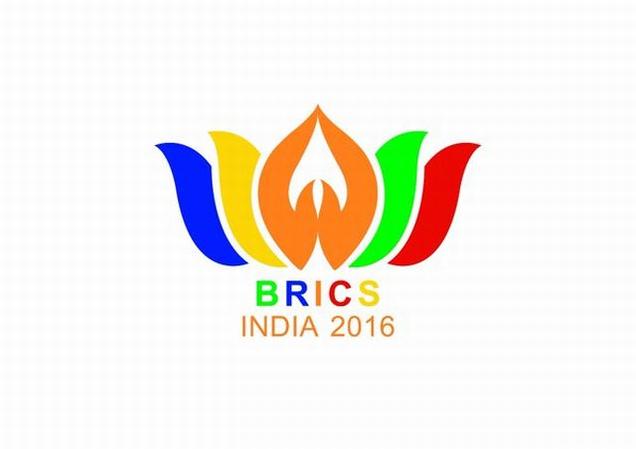
BRICS summit build-up: Focus on development cooperation
The build-up towards the 8th BRICS summit India will be hosting in Goa in October has acquired a momentum, with a series of meetings being planned in the next ten …
Read MoreGlobal Indian News

The build-up towards the 8th BRICS summit India will be hosting in Goa in October has acquired a momentum, with a series of meetings being planned in the next ten …
Read More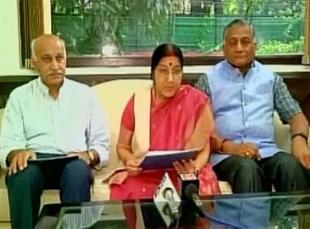
In a hard-hitting statement exposing Pakistan’s duplicity and support in fomenting unrest in Kashmir, India has made it clear to Pakistan that its embrace and encouragement to terrorism won’t succeed and underlined that the dream of Pakistan of acquiring Jammu and Kashmir will never be realised till eternity.
A day after Pakistan Prime Minister Nawaz Sharif alienated New Delhi by asserting that Kashmir will one day be part of Pakistan, India’s External Affairs Minister Sushma Swaraj read out the strongest statement yet on Islamabad’s role in inciting violence in Jammu and Kashmir, which has killed over 60 people and left hundreds injured.
“Behind Pakistan’s unabashed embrace and encouragement to terrorism lies its delusional though dangerous dream that ‘Kashmir will one day become Pakistan’, as Prime Minister Sharif said yesterday,” said Swaraj, flanked by Ministers of State M. J. Akbar and General (retd.) V K Singh in New Delhi on July 23.
The minister’s statement indicates a hardening of stand on Pakistan-sponsored terrorism and violence by the Modi government, which had taken path-breaking initiatives to mend fences with its estranged neighbour, but without much success due to the continued intransigence by Pakistan’s ruling establishment.
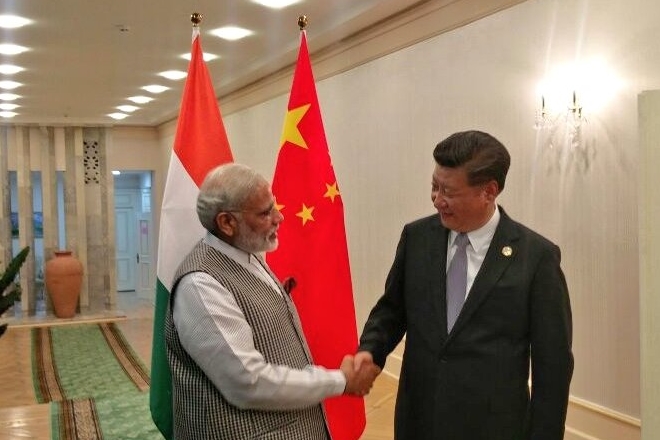
The ruling by an international tribunal rejecting China’s “historic rights” to islands in South China Sea has prompted New Delhi to renew its call for resolving maritime disputes through peaceful means, sans use of military force.
In response, China has asserted that it too wants to resolve the dispute by “fully complying” with the international law.
The verdict is seen in India as a vindication of India’s long-standing position on freedom of navigation and resolution of maritime disputes through UNCLOS. “The court has upheld India’s position on freedom of navigation. The ruling will benefit India economically as well as strategically,” Srikanth Kondapalli, an influential China-expert at Jawaharlal Nehru University, told India Writes Network.
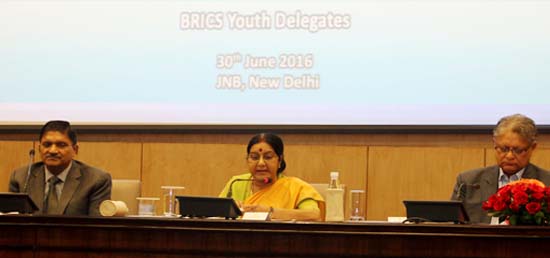
Placing youth at the centre of its vision of a people-centric youth, India, the current chair of the five-nation grouping of emerging powers, has pushed for fast-tracking reform of the UN Security Council and collective response to tackling global terror.Ahead of the 8th BRICS summit in Goa on October 15-16, India hosted the second BRICS Youth Summit, which brought together young people from China, Russia, Brazil and South Africa, to brainstorm on a slew of global challenges and enhance people-to-people connect between the five countries.
The minister also seized the occasion to send a message to “those countries which sponsor and harbour terrorists” and underlined the need to “work and fight together to eliminate international terrorism.”
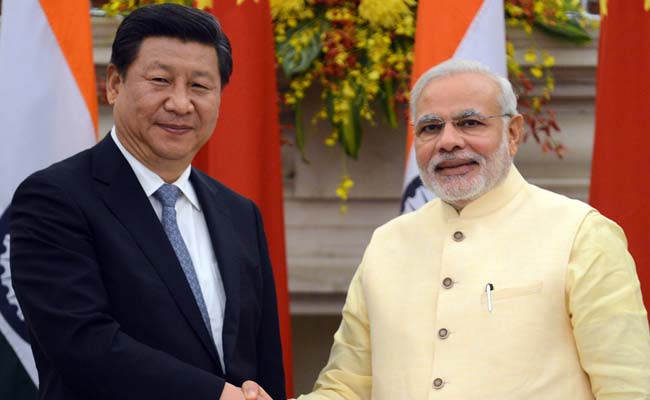
The nuclear wall seems to be rising between the two Asian giants, with China hedging on India’s membership of the Nuclear Suppliers Group. Ahead of the crucial NSG plenary in …
Read More
Radiant smiles, a stately wave of hands, warm hugs….US President Barack Obama touched down in India to begin a three-day historic trip that’s set to map out new frontiers for the dynamic and evolving India-US relations.
The second visit by Mr Obama to India, and the first by an American president as the chief guest at the country’s Republic Day celebrations, is deeply symbolic of a new high point in the transforming relations between the world’s two largest democracies.
With First Lady Michelle on his side, Obama walked down the air-stair of Air Force One on a wintry Sunday morning in Delhi to a red carpet welcome.
Breaking protocol, Prime Minister Narendra Modi personally received him, with the two leaders warmly hugging each other – an embrace whose meaning is going to unfold in the next three days President Obama will be in India. The surprise decision by Mr Modi to receive his American guest at the airport has kindled optimism that the two leaders have managed to resolve some knotty issues and are on the verge of announcing significant outcomes after their wide-ranging talks in the afternoon.

More than six years after the terror mayhem in Mumbai shocked India and the world, the unresolved puzzle of the 26/11 strike continues to outrage and intrigue the intelligence and …
Read More
With the world’s gaze turned on the India growth story and the trajectory of the country’s economic reforms in Asia’s third largest economy, Prime Minister Narendra Modi has assured the international community about his commitment to “people-centric” reforms and the need to insulate it from “the political process.”
“There is bound to be resistance to change or reform. But it cannot be done in stealth,” Mr Modi told the leaders of the world’s leading economies during a special intervention on the first day of the G20 plenary session in Brisbane November 15. His remarks came in response to an invitation by Australian Prime Minister Tony Abbott, who is hosting the Leaders’ Summit.
In a veiled allusion to the pulls and pressures of democratic politics and India’s argumentative society, Mr Modi underscored that there was a need to “insulate reforms from the political process,” indicating his government’s willingness to go ahead with difficult second-generation economic reforms despite opposition from critics and sections of his own party to FDI in in multi-brand retail.
Ever since his election as the leader of the world’s largest democracy in May 2014, the world has been curious to know about Mr Modi’s vision of the prospects of the economic reforms in Asia’s third largest economy, which were bogged down in policy paralysis under his predecessor.

Signalling a triumph of the negotiating prowess of the Narendra Modi government, India and the US have managed to strike a compromise formula on food subsidies, which paves the way for salvaging the stalled World Trade Organization (WTO) deal on easing of customs rules.
The mid-way formula that ended months of impasse in global trade negotiations envisaged an indefinite “peace clause” on food security until a permanent solution is found, a key demand of India for which Indian negotiators played hardball, resisting concerted pressure from developed countries. A “peace clause” provided legal security to member countries and protects them from being challenged under WTO’s subsidy caps. In India’s case, it effectively means that the country can continue with its food security programmes without attracting WTO penalties pending a permanent solution to the contentious issue of subsidies.

India and China held the first round of talks since the installation of the Modi-led NDA government in New Delhi, which focused on firming up the roadmap for intensified interaction …
Read More